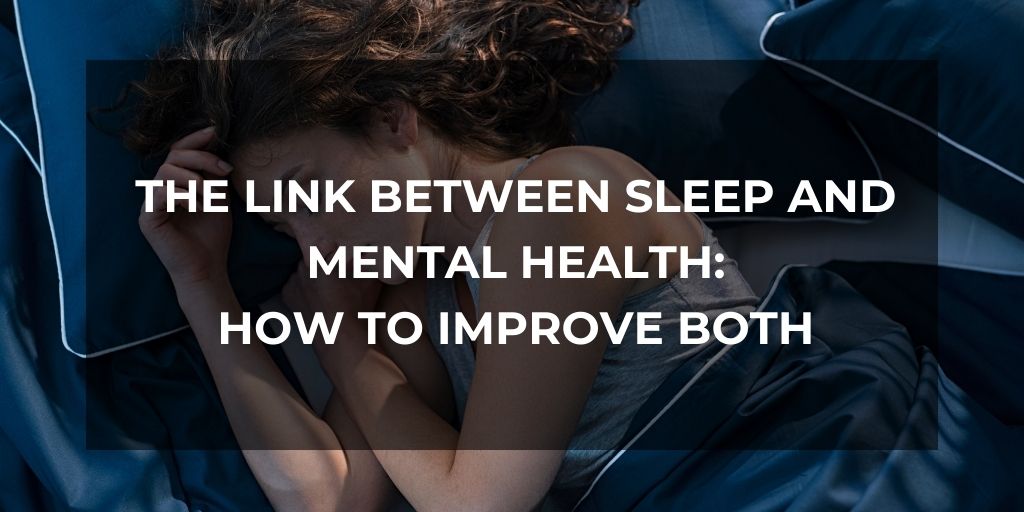The Link Between Sleep and Mental Health: How to Improve Both
Sleep and mental health are two essential components of our overall well-being that are closely linked. The quality of our sleep can have a profound impact on our mental health and vice versa. In this blog, we will explore the relationship between sleep and mental health and discuss practical ways to improve both.
Sleep and mental health are intertwined in a complex way. Poor sleep can lead to various mental health problems, such as depression, anxiety, and stress. At the same time, mental health conditions such as anxiety and depression can also disrupt sleep and make it difficult to get the restful sleep that we need. This creates a vicious cycle, where poor sleep can exacerbate mental health problems, and mental health problems can disrupt sleep even further.
Sleep is crucial in regulating our emotions, moods, and cognitive functioning. During sleep, our brains process information from the day and consolidate memories, which helps us to remember information and think more clearly. When we don’t get enough sleep, our brains don’t have the time to process this information, which can lead to feelings of irritability, mood swings, and difficulty concentrating.
Conversely, good sleep can help to improve our mental health. When we get a good night’s sleep, we feel more energized, refreshed, and able to face the challenges of the day. Good sleep can also help us to manage stress and anxiety more effectively, as our brains have the time to process information and regulate our emotions.
So, how can we improve both sleep and mental health? Here are some practical tips:
1. Stick to a sleep schedule: Try to go to bed and wake up at the same time every day, even on weekends. This helps to regulate your body’s circadian rhythm and improve the quality of your sleep.
2. Create a relaxing bedtime routine: Before bed, engage in relaxing activities such as reading a book, taking a bath, or listening to calming music. This will help your body and mind to relax and prepare for sleep.
3. Avoid stimulants before bedtime: Caffeine, alcohol, and nicotine can all interfere with sleep. Try to avoid consuming these substances in the hours leading up to bedtime.
4. Limit screen time before bedtime: The blue light emitted by screens can interfere with sleep, so it’s best to avoid using electronic devices such as phones and laptops for at least an hour before bedtime.
5. Exercise regularly: Regular exercise can help to improve sleep and reduce stress and anxiety. Aim for at least 30 minutes of moderate physical activity most days of the week.
6. Practice good sleep hygiene: Keep your bedroom quiet, dark, and cool. Invest in a comfortable mattress and pillows to ensure that you are comfortable while you sleep.
7. Manage stress: Practice stress-management techniques such as meditation, deep breathing, or mindfulness. These can help to reduce stress and anxiety and improve sleep.
As you are no doubt beginning to realize, the link between sleep and mental health is complex and multi-faceted. Improving our sleep can help to improve our mental health, and vice versa. By implementing some of the simple sleep-promoting habits and stress-management techniques above, we can improve the quality of our sleep and help to protect our mental well-being. By doing so, we can ensure that we are well-rested and ready to perform at our peak.
You can follow Sam on Twitter: @SuperTaoInc


